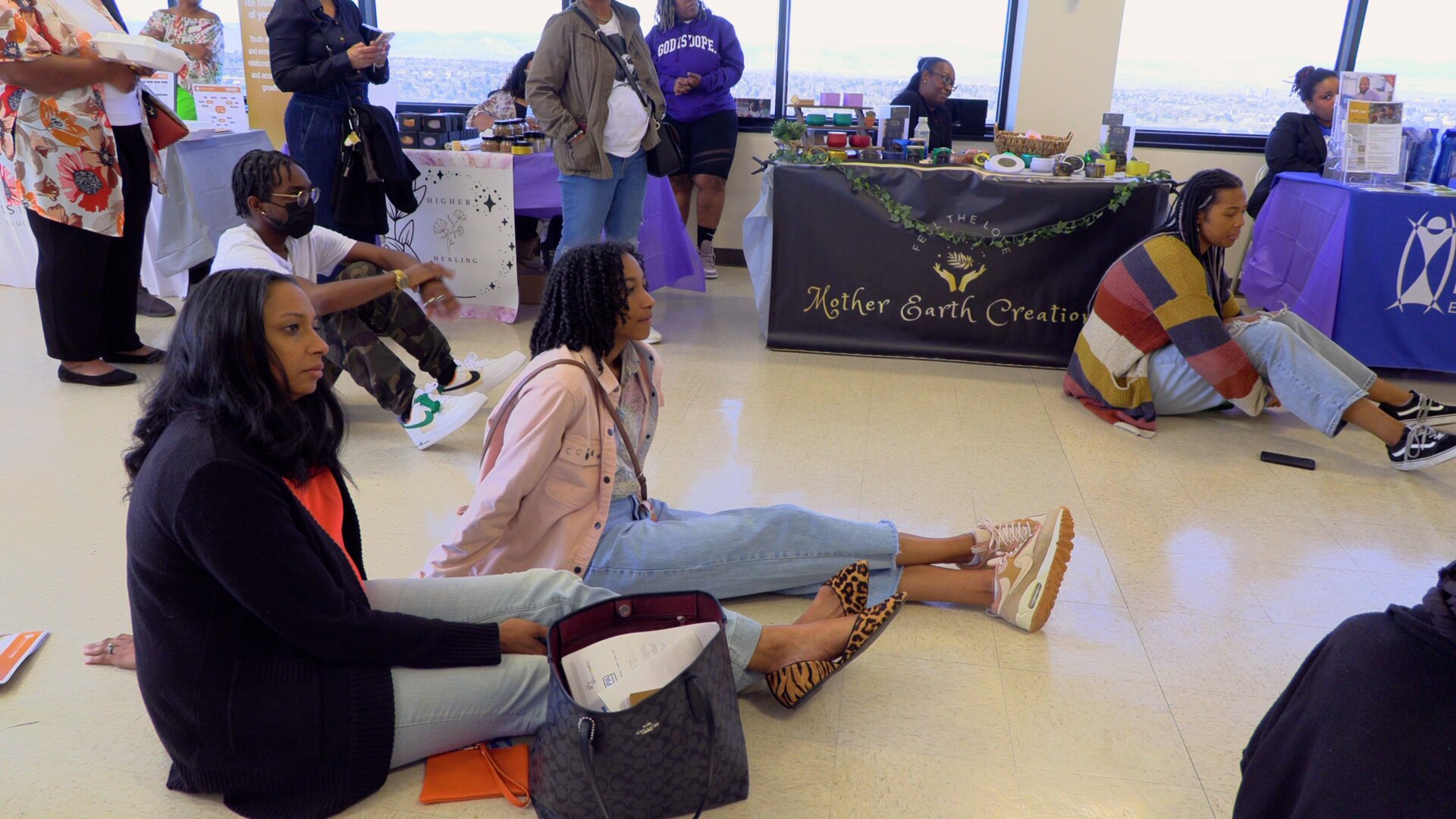Youth nonprofit works to destigmatize mental health struggles for young Black people

AURORA, Colo. — Adhieu Redgebol, 16, is the daughter of a single mother who came to the United States from South Sudan several years ago to escape civil war. She was one of several people on a speaking panel for YAASPA’s annual health and wellness summit for young Black people this month.
YAASPA stands for the Young Aspiring Americans for Social and Political Activism, and it’s an organization that supports Black, Brown and Indigenous students in middle and high school by exposing them to possible career pathways and degrees in social justice, while teaching them about civic literacy, and providing scholarships and skills to help dismantle racism within the education system.
Everyone in the room seems more than comfortable talking about the mental health issues that affect their communities, including Redgebol. “It all started with me loving myself,” she said.
“I want to advocate for immigrant children who grew up in a single immigrant household … who have trauma from having parents that come from different countries,” added Redgebol.
Redgebol said that the dual experiences of leaving South Sudan and being a Black immigrant in the United States have affected her emotional and social well being.
“I’m a dark skinned girl who has gone through colorism, featurism, texturism, you know; my hair being too nappy, or my skin being too black for the norm of society,” she explained to a room full of other young Black and Brown people who also shared their experiences.
[Related: Young adults work alongside community leaders and educators to dismantle systemic racism in schools.]
20-year-old Aaliyah Johnson is a public health intern with YAASPA. She emphasized why access to mental health care is so important.
“Hurt people hurt people,” she said, explaining why taking care of oneself first is so important. “If we’re not taking care of ourselves how are we supposed to show up for people we care about, and people in our community? What if you have kids? How can you show up for your kids if you’re not OK mentally, physically and emotionally, from day to day?”

Extra mental health support for young people is needed now more than ever, with suicide rates climbing in people from ages 10 to 24. Studies also show that self reported suicide attempts in young Black people rose by 80 percent from 1991 to 2019. Moreover, Black families are less likely to talk about a mental health crisis when it happens because of the stigma, according to research from to Mass General Brigham, a nonprofit hospital based in Boston.
[Related: Doctors and medical students aim to inspire the next generation of Black doctors.]
Clinical psychologist Anthony P. Young encouraged everyone in the group to look for and offer each other support with open minds.
“When we feel shame we’re not going to share. Being more open to what someone has to share with us without judgment — that is a skill in itself because we’re trained in society to judge everything,” said Young.
For Johnson, she feels showing up in spaces in the most authentic way is the key.
“I try to keep the same energy no matter what space I’m in, whether it’s white spaces, Black spaces, school, whatever," she said. "It’s important that we hold true to ourselves no matter what.”
Lindsey Ford is a multimedia journalist at Rocky Mountain PBS. You can reach her at lindseyford@rmpbs.org.
